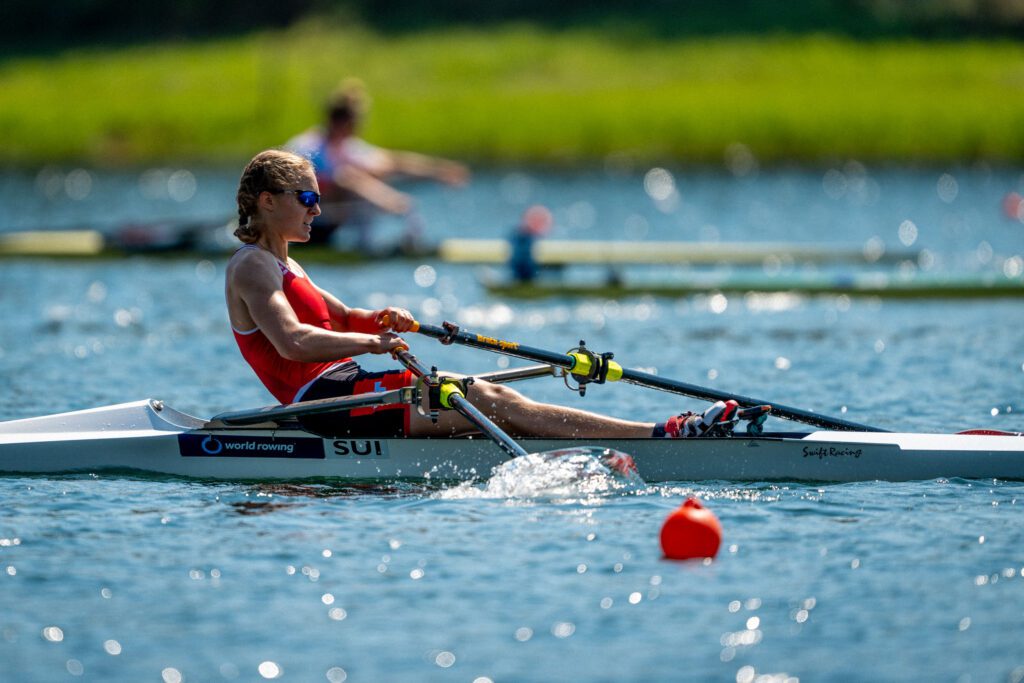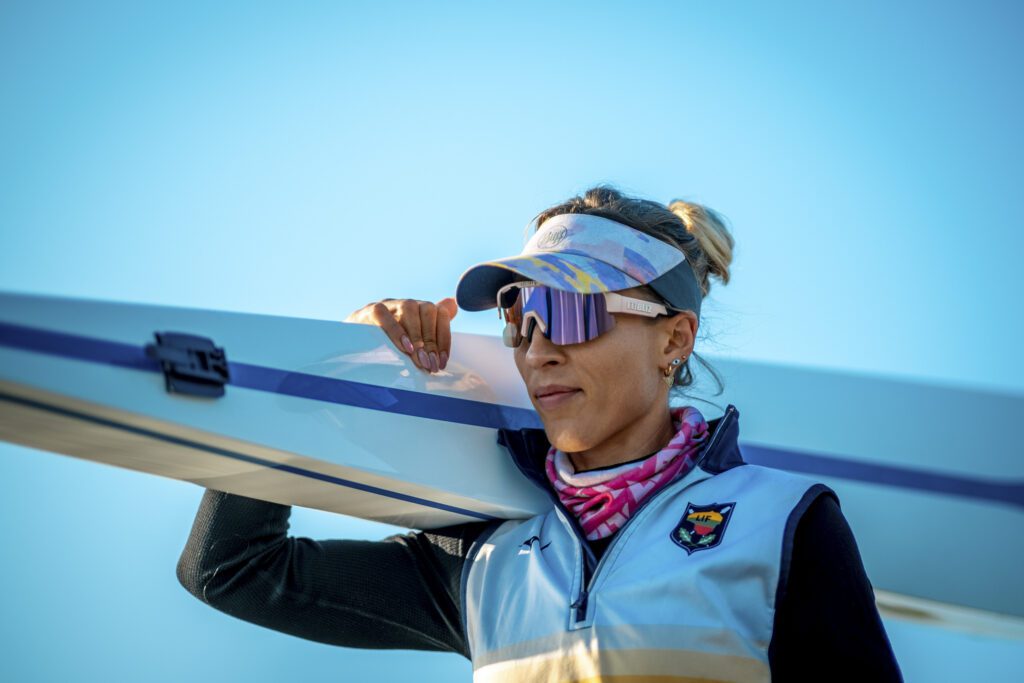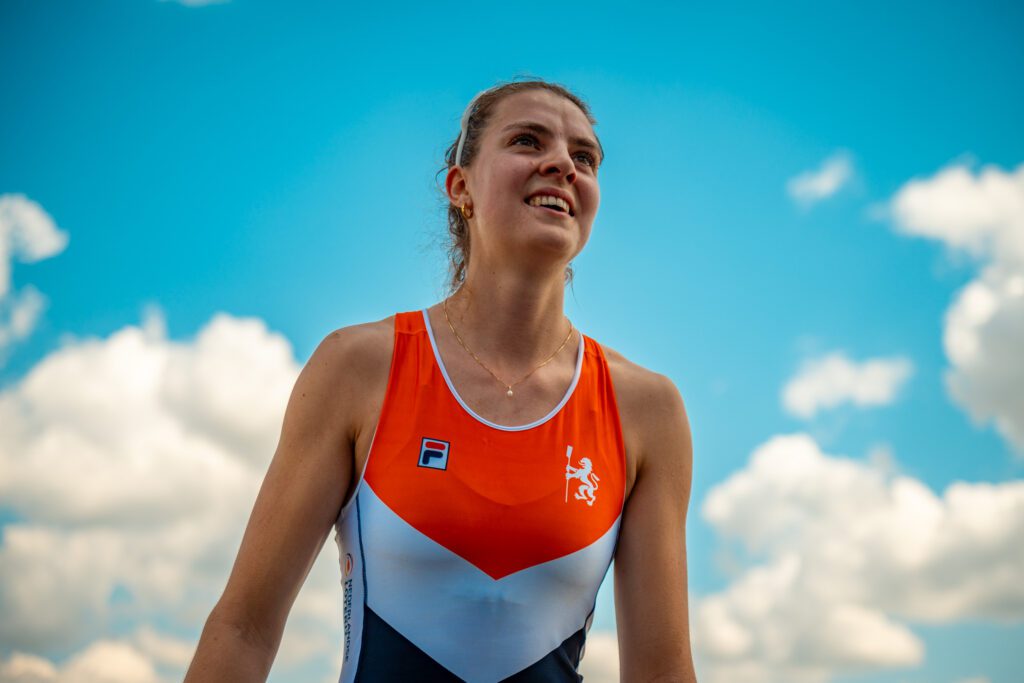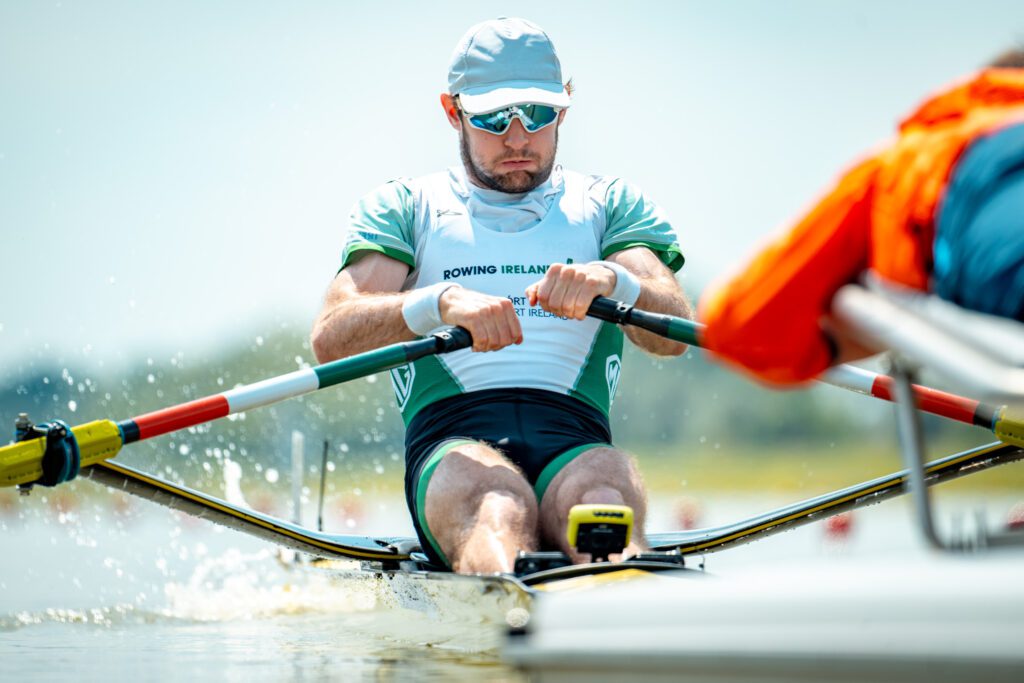The Final Olympic Qualification Regatta took place in Lucerne from the 15th to 16th May. It was scheduled to conclude on Monday 17th May but forecasted stormy weather meant the event organisers hurried to complete all the racing by Sunday. It is known as the Regatta of Death and many Olympic dreams are killed on the beautiful Swiss lake, but which future Olympians thrived?
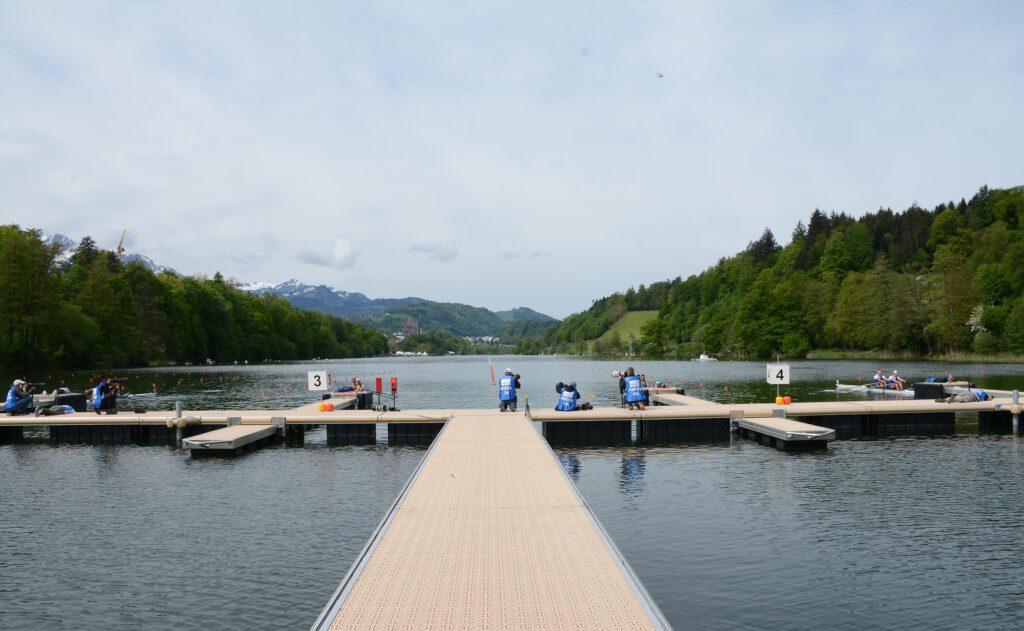
Photo The start in Lucerne
Credit USRowing
The first Olympic hopefuls to wrestle with destiny came by way of the men’s pairs event. They had to race both the semi-final and final in quick succession – both on Sunday morning after the reshuffled racing schedule. The Danes got off to a quick start and were the first to the 500-meter marker. They were closely followed by the Dutch and then the British and Americans crews. Not much separated the four in the second half and it went to a sprint finish: the Dutch pushed through the Danes with a slender 0.7 second margin on the line and both crews held off the rest of the field to claim their Olympic qualification.
Estonia’s Olympic legend Tonu Endrekson led his crew to the top of the podium in the men’s quadruple scull. He is set to compete in his fifth Olympics this summer. The four Estonian scullers edged out the Russians in a fierce sprint finish. The Russian quadruple scull bravely held on to second place and secured the last qualification spot. Lithuania and Romania did not make the cut.
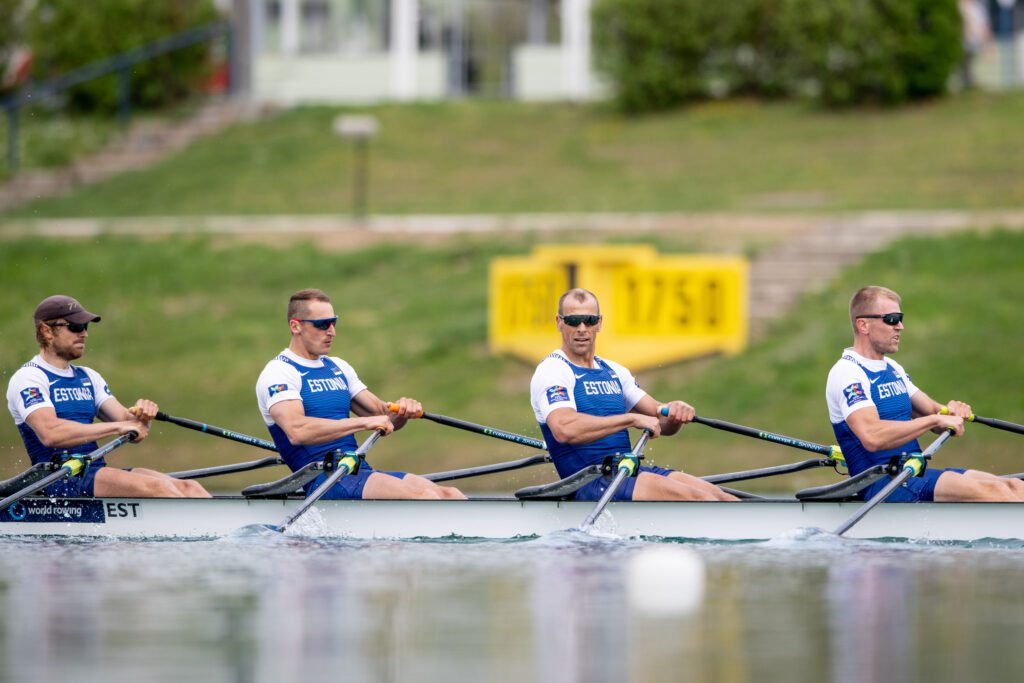
Photo EST M4x – Tonu Endrekson led his crew to the top of the podium in the men’s quadruple scull
Credit Benedict Tufnell
Russia enjoyed a successful regatta with their women’s pair, women’s double sculls, men’s double sculls and men’s single sculls all booking their spot to Tokyo.
One of the hardest fought events was the men’s single. It had 23 scullers fighting for only two places. John Graves of the United States saw his Olympic dream vanish in the repechage. In the final, Canada’s Trevor Jones and the Polish Olympian Natan Wegrzycki-Szymczyk clung to Russia’s Alexander Vyazovkin who pushed out to an early lead. Going against the form book the Polish sculler did not make the cut. Jones, the 23-year-old Canadian, will look forward to his first Olympic appearance after nailing the sprint finish. It was a tight race with Vyazovkin holding off Jones; they took the two qualification spots. Canada also qualified their men’s four and lightweight men’s double sculls.
Unlike every other boat class, the lightweight women’s double sculls had three qualification slots available. This is due to an empty spot at the Americas Continental Qualification Regatta. It was a close race and a great one for spectators. Having proved their speed against the heavyweights back home, Americans Michelle Sechser and Molly Reckford tenaciously fought the Swiss and the Irish to secure the win. Marching towards Tokyo, Molly will proudly follow in the footsteps of her late grandfather who was a two-time Olympian. It was a rare win for the US contingent who missed all bar one of their six boats.
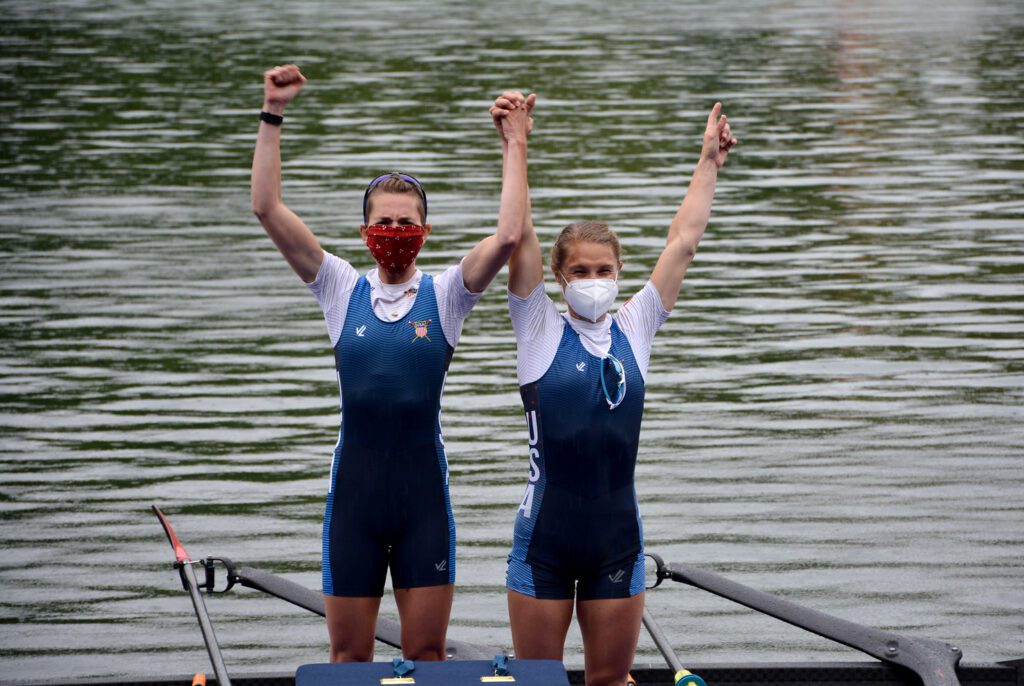
Photo Michelle Sechser and Molly Reckford (USA) LW2x
Credit USRowing
The Romanian coaches know how to make the eight sing. Their sweep athletes secured the last qualification spot in both the men’s and women’s eights event. This will significantly increase the size of their Olympic delegation. China showed serious potential as they dominated the women’s eight with a new line-up. And on the men’s side it was the Kiwis who stole the show. The former cyclist and two-time Olympic champion Hamish Bond led the charge. He pedalled his notable experience for the good of the fern-clad lads as they booked their ticket to Tokyo. They were the only Kiwi crew racing as the New Zealand selectors chose not to send a men’s quadruple sculls. An ergo and a hotel room awaits the victorious New Zealand eight as head back to quarantine.
Many of the four hundred plus athletes who competed at the regatta are travelling home for a spell of quarantine, most must confront the end of their Olympic journey while those successful qualified can reboot before continuing their path. Several crews such as the South African men’s four and the Chinese women’s eight are staying in Switzerland to compete at World Cup II which starts on Friday 30th May 2021. All the qualified boats must be confirmed by their respective National Olympic Committees before officially taking their spots at the Olympic Games.
